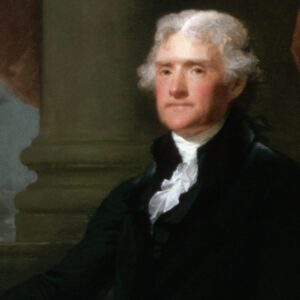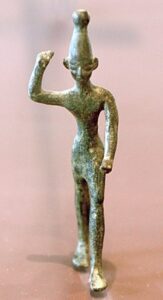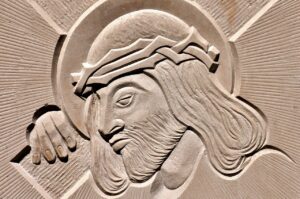There is a new term entering into our national vocabulary. It is “Restorative Justice.” With many of the recent changes in jail bail amounts, dropping of cash bail requirements, defunding of policing, and lowering thresholds defining the severity of crimes, the debate has become whether justice for the populous is served by simply reducing the severity associated with criminal activity. This study looks at the biblical definition and support for the ideas behind restorative justice.
Restorative justice is meant to repair the harm caused by crime. It is based on a collaborative process between victims, offenders, and community members. The emphasis of restorative justice is accountability. It involves restoration of the victims’ rights, as well as those of the offenders. What restorative justice is not is the continued release of offenders without accountability. The word restore comes from the Latin word rēstaurāre to rebuild, to bring back to health, to return (something lost, stolen) to its owner or to re-introduce, re-enforce, or restore discipline.
Crime is not new in our human history. In Genesis, the first book of the Bible, we are given an immediate introduction to a horrific crime, murder. Adam and Eve’s sons, the brothers Cain and Abel, find themselves in competition for God’s favor. Cain kills his brother most likely with a stone in a fit of jealousy. We read on in Genesis that society continues to break down and God is forced to bring on the “Big Flood.” A man named Noah saves humanity and humanity gets another try. God then lays out a restorative plan for everyone. We see the roots of biblical restorative justice begin here with God’s covenant to Abraham:
(Genesis 12:1-3)[ref]NIV New International Version Translations[/mfn] – “The Lord had said to Abram, ‘Go from your country, your people and your father’s household to the land I will show you. I will make you into a great nation, and I will bless you; I will make your name great, and you will be a blessing. I will bless those who bless you, and whoever curses you I will curse; and all peoples on earth will be blessed through you.’”
Today, society might blame the murder of Abel on the availability of stones. Yet, to kill, to destroy life takes many forms. Weapons can be anything: a car, a hostile relationship, drugs, or simply a choice to end the life of a child rather than become a parent. Poor decisions are behind every crime. The nature of the problem with restoration lies totally in the heart (mind). Fear of imprisonment, or incentives have never worked well. For Restorative justice to be successful requires the transformation of a heart into one that seeks to please God.
God responded to human depravity, alienation, and injustice by first creating a covenant with His people. God established a set of Laws. God’s promise was to ultimately create a lasting community of peace. It is still God’s promise! Members will share the community together, peacefully, and forever. Restorative justice, therefore, begins with conforming to the Will of God. God’s justice has always been intended for the salvation of His people and the restoration of covenant relationships. God’s love is always working to set right that which has been and continues to be corrupted.
(Ephesians 2:12-13) – “remember that at that time you were separate from Christ, excluded from citizenship in Israel and foreigners to the covenants of the promise, without hope and without God in the world. But now in Christ Jesus you who once were far away have been brought near by the blood of Christ.”
The emphasis of God’s covenant is on God’s purposes, not ours. Think of our earth as a classroom. It is here, where we can learn about God’s community and God’s plan of service others. The goal of humanity’s justice, however, begins with the relationships we have with each other. God is usually excluded from the equation. Biblical teaching emphasizes the poor and needy, their oppression, and their exclusion from community life. We are taught that if we don’t help each other, the community is destroyed. Everyone is harmed. For there to be peace in our world, justice and righteousness must both be present. Justice and righteousness are clearly associated with the presence of God. History reminds us that evil calls bad things good and gains its power and wealth at the expense of the poor and weak. Instead of justice, our world gives us turmoil, crime, and war.
Biblical “Justice” is by its very nature, restorative. The Bible’s God is “just” especially in that God seeks to bring about healing in relationships, transform communities, restore offenders into God’s family, and bless all the families of the earth. This cannot be done unless we cooperate with God, and this cannot be done without repentance. Repentance begins with the personal discovery of sin. It is accompanied by the deep understanding that we are sinful and then followed by a resolution to change ourselves. The change brought about by a repenting heart is not a superficial change. It is a deep and practical change in our fundamental beliefs. For Restorative Justice to prevail, there must always be a turn from sin toward righteousness. This requires an understanding that sin is offensive to God! For Restorative Justice to prevail within our world, our world must believe that God’s existence is True and that God is worthy of our obedience. Eliminating God from society is not the answer!
(1 John 3:1-3) – “See what great love the Father has lavished on us, that we should be called children of God! And that is what we are! The reason the world does not know us is that it did not know him. Dear friends, now we are children of God, and what we will be has not yet been made known. But we know that when Christ appears, we shall be like him, for we shall see him as he is. All who have this hope in him purify themselves, just as he is pure.”
The path to successful Restorative Justice is through the Cross of Jesus Christ! The Cross first forgives, then transforms the heart.
(Romans 5:9-10) – Since we have now been justified by his blood, how much more shall we be saved from God’s wrath through him! For if, while we were God’s enemies, we were reconciled to him through the death of his Son, how much more, having been reconciled, shall we be saved through his life!
Contemplations
- Prison ministries are not new. Why do you think we do not hear more about their success?
- Ideas to Explore: Hatred of God? Biased media? Disbelief? Fear?
- Have you seen examples of Restorative Justice that worked?
- Ideas to Explore: Youth programs and camps? Testimonies?
- We live in a world that rewards sinful actions – How do you restore one’s heart and change their beliefs?
- Ideas to Explore: Does accountability help? Where do prisons fail the offenders?
- What would you do to help someone who has led a life of crime, been in prison many times, has no skills, and no family except the street?
- Ideas to Explore: Incarceration protects society. However, what should be done to help those offenders after they are released?









